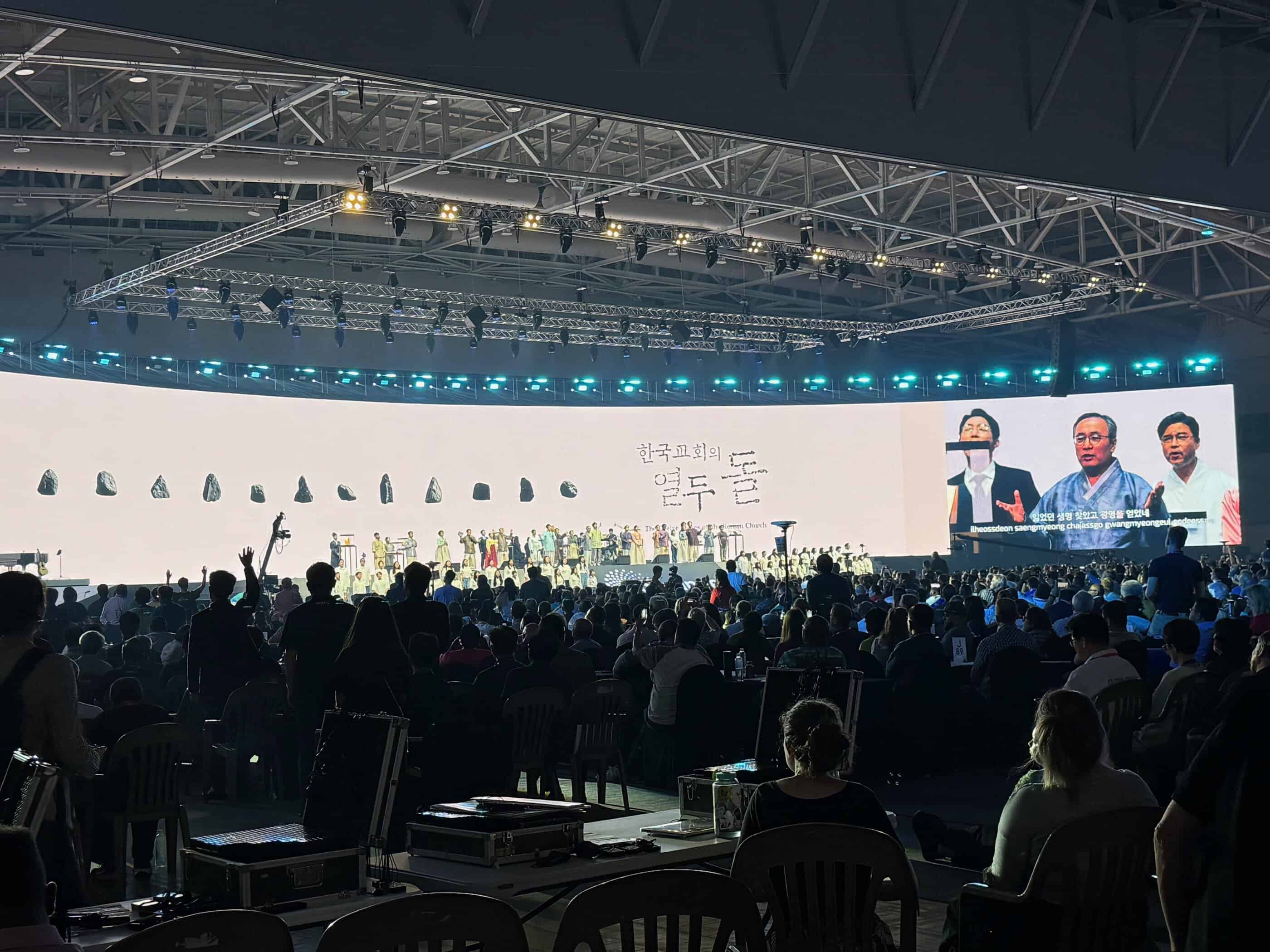
The Fourth Lausanne Congress, September 2024, Memos from Incheon Memo #7
Why is the Fourth Lausanne Congress being held in Asia? Partly to recognize the massive growth of Asian Christianity and partly to celebrate the growth and influence of the Korean church.
Thursday night of this week was billed as “A Night for the Korean Church,” where our Korean hosts told their story. They described their land 140 years ago as “a land shrouded in despair and darkness,” steeped in the traditional religions of Shamanism, Confucianism, and Buddhism.
Today almost one third of South Koreans are Christian. In fact, there are more Christians in Korea than Buddhists! The Koreans have some of the largest churches in the world. South Korea is the second largest missionary sending nation in the world. Our Korean hosts said that in the early days of the Korean revival many prayed, not that they would be a political power among the nations, but a spiritual power. They gave glory to God for the light of Jesus Christ and the power of the gospel–the greatest people-changing culture-changing force in the world.
How was Christianity first introduced to Korea? Christian teachings first came to Korea in the early 1600s. It was brought by Korean diplomats who came in contact with Roman Catholics in Japan and Manchuria. They brought back Christian books to Korea. and Catholicism took hold and began to spread. As it spread it was vigorously suppressed, leading to the country’s first Christian martyrs.
Protestant missionaries to Korea came in the early 1880s, beginning with Horrace Allan, the first resident Protestant missionary (a presbyterian medical missionary). Other Protestant missionaries followed and began setting up schools, hospitals and publishing agencies. Translation of the first complete Korean Bible was finished in 1911. At that time about 1% of the Korean population was Christian. But then the church started to grow. Why? Our Korean hosts said there were multiple reasons.
First, the Korean church was born through Bible translation and the dissemination of the Scriptures. Second, they said, by 1908, the Korean church was already sending out missionaries. They took the Great Commission seriously.
A third factor was revival. The Pyongyang Revival of 1907 resulted in a dramatic increase in the number of new Protestant converts. This revival also introduced key practices that would characterize Korean Protestant Christianity—such as fervent repentance, early morning prayer, all-night prayer. This great revival led to many subsequent revivals that were born in repentance and prayer.
Another factor contributing to the growth of Christianity was 35 years of Japanese colonization. Many of the leaders of the Korean protest movement working for Korea’s independence from Japanese oppression were Christians. We were reminded that the church played a key role in the Korean Declaration of Independence.
Another accelerant of Christianity in Korea, according to our hosts, was suffering. The Korean church has experienced tremendous amounts of persecution—by the Japanese, by a traditional Korean culture, and by the communists in the 1940s. The church also suffered through a devastating war in the 1950s. And yet through it all, the church has shown a prayerful resilience in the face of suffering. It has given the global church a model of how to endure in trials.
Still another factor in the growth of the Korean church was their involvement in the post-war reconstruction, especially in education. The Korean church adopted a method pioneered by the early Protestant missionaries of starting Christian schools. Since then they have founded 293 schools and 40 universities!
On Thursday evening’s Night for the Korean Church our hosts gave glory to God for the gospel and its transformative power. They said it breathed new life into a nation that had lost hope and sovereignty. They attributed the miraculous transformation of Korea to this spiritual rebirth.
At the end of the evening we were encouraged to pray for the church in South Korea. They asked us to give thanks to God for what he has done. They requested prayer that they would be faithful to the gospel and the Word of God. They wanted prayer for the Korean missionary movement (they are now the second largest missionary sending nation in the world). They also wanted prayer for the younger generation and continued blessing on the Korean church. Finally, they asked for prayer for North Korea. And this will be the subject of my next post.
